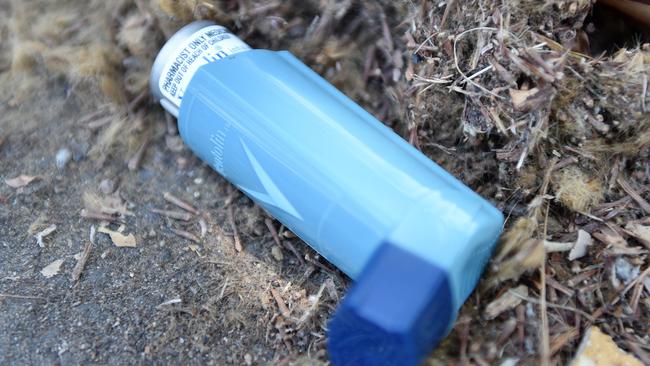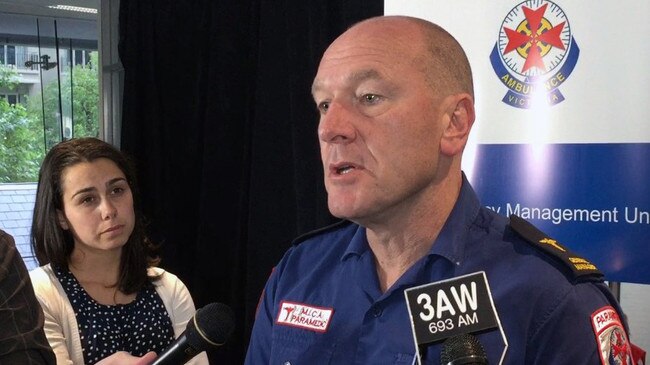Thunderstorm asthma warning, pollen forecast as ‘extreme’
An alert has been issued for sufferers of thunderstorm asthma, as stormy conditions and pollen levels increase. Here’s what you need to know to stay safe.

VIC News
Don't miss out on the headlines from VIC News. Followed categories will be added to My News.
Victorians have been warned to prepare as an extreme pollen alert is issued on the third anniversary of a deadly thunderstorm asthma outbreak.
The State Control Centre issued an advice message to the North East district at 12.05pm regarding thunderstorm asthma.
It advises people may experience asthma symptoms or difficulty breathing due to the combination of thunderstorm activity and high grass pollen levels.
“If you have a history of asthma or hay fever, or you experience wheezing, breathlessness, a feeling of tightness in the chest or a persistent cough, you should have reliever medication with you at all times today,” the advice message said.
“Avoid the wind gusts before the storm. Go inside and close your windows and doors before and during the storm.
“If you’re experiencing any of the above symptoms you may be having an asthma attack.
“An asthma attack is serious and can be life threatening.”
Ten people died on this day in 2016 due to the freak event.
The Department of Health and Human Services has forecast a moderate risk of thunderstorm asthma for Victoria, while Melbourne’s pollen count is rated as extreme.

With high temperatures, fires and strong winds predicted today, the National Asthma Council is telling sufferers to stay vigilant.
High pollen counts, smoke haze and thunderstorms can all trigger asthma.
“People do not need to be in the immediate area of a fire to suffer from the effect of smoke on their lungs,” NAC chief executive Siobhan Brophy said.
“Wherever smoke haze is visible, it is a threat to those with asthma.”
Ms Brophy said tragic lessons have been learned about thunderstorm asthma during the last three years.

“Thunderstorm asthma does not just occur in people with asthma, it affects those who have an
allergic reaction to the grains in the air,” she said.
“One in five Australians have hay fever and many do not know they could be at risk of having an asthma attack during a thunderstorm asthma event.”
MORE NEWS
SYDNEY’S AIR WORSE THAN BEIJING
PATIENTS OVERDOSED ON PAINKILLERS AFTER SURGERY
At-risk Victorians should avoid being outside during fires and storms, especially during windy
weather, and should carry their asthma reliever with them at all times.
The asthma council advises if you are having breathing difficulties but have not been diagnosed with asthma before, you should head to a doctor or pharmacist.
